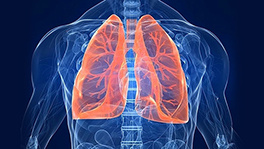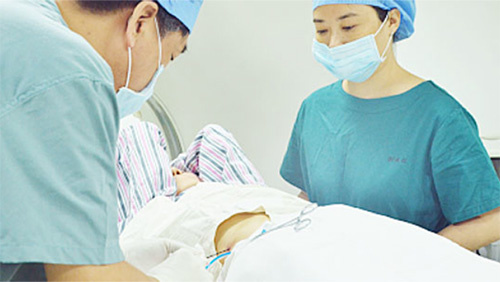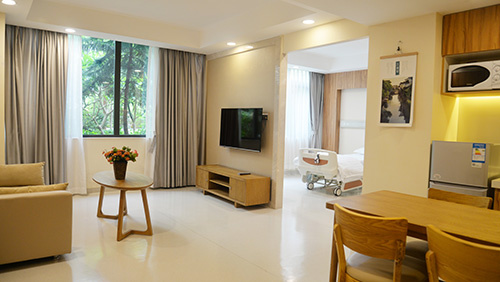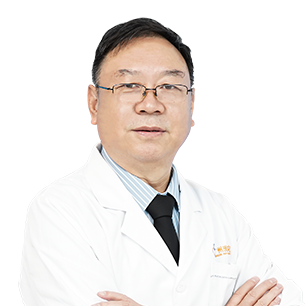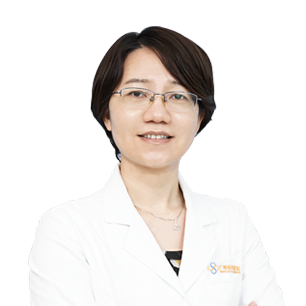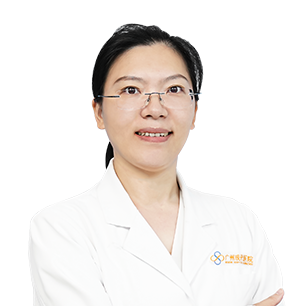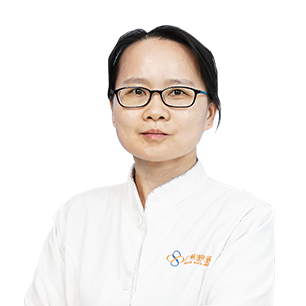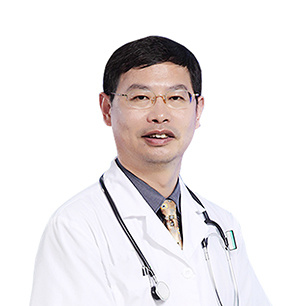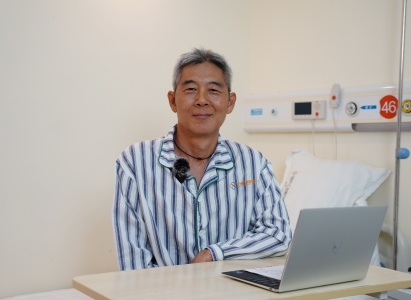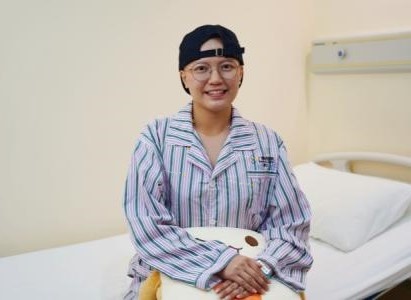 Views:195
Views:195 2023-09-14
2023-09-14 Share
Share
On August 12, 2023,Indonesian Traditional Health Commission Chairman SUNARTO HARDJO SOETOPO, Vice Chairman SURYAWAN ANG and others, and the Manila Medical Association of the Philippines Secretary-General Mr Balagtas Jr Dela Rosa and others visited St. Stamford Modern Cancer Hospital Guangzhou, aiming to learn the hospital's advanced cancer minimally invasive technology and comprehensive medical service system, promote the exchange of cancer treatment technology, seek cooperation and develop together.
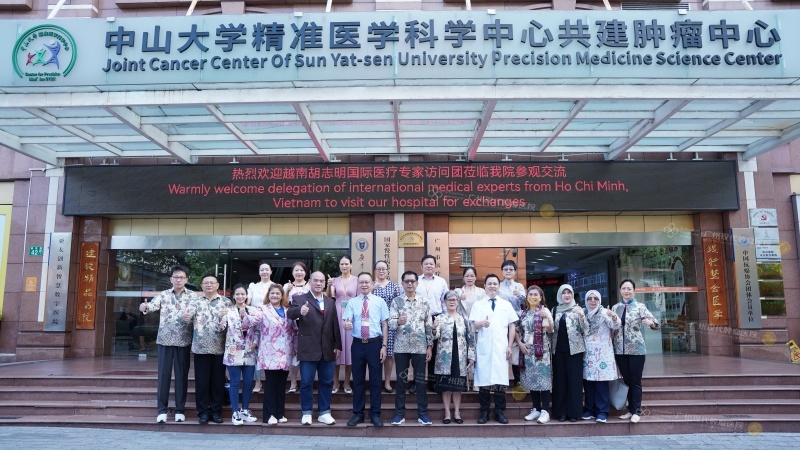
Wang Huaizhong, President of St. Stamford Modern Cancer Hospital Guangzhou, and the leaders of the hospital extended a warm welcome to the visiting group and the delegation on behalf of the hospital.
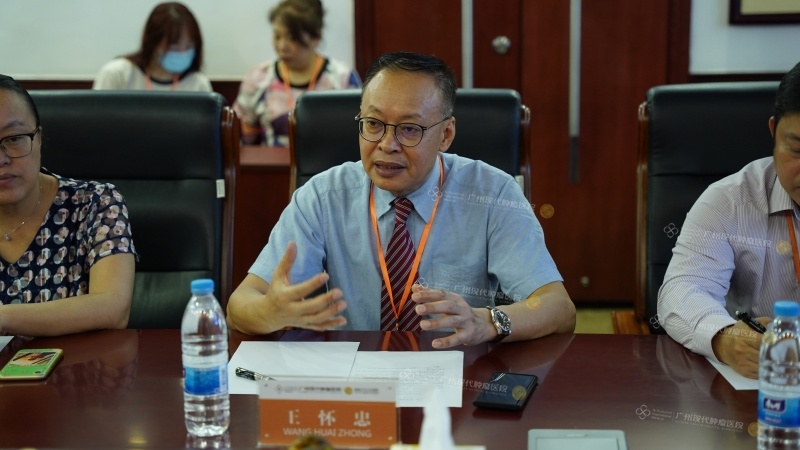
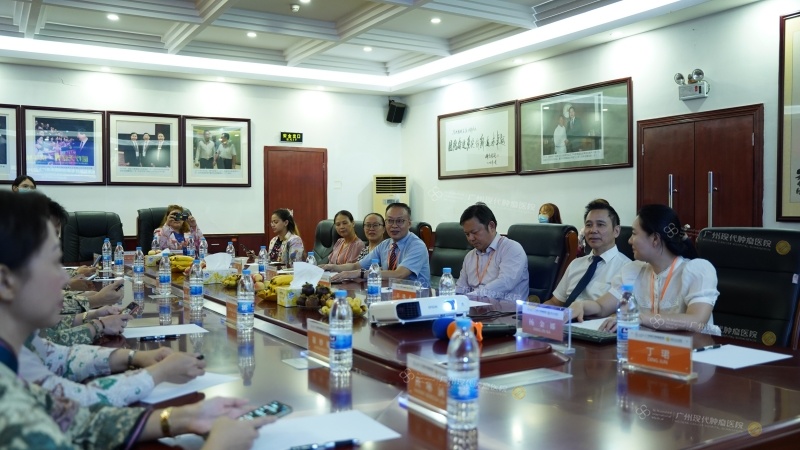
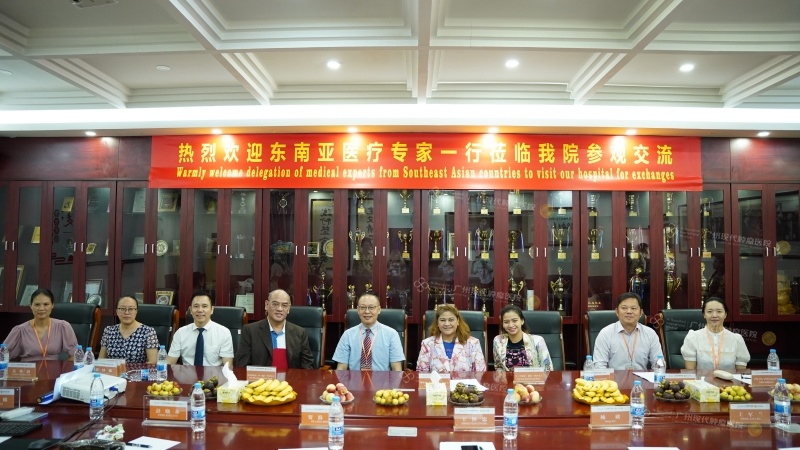

President Wang Huaizhong said that as a US JCI-accredited international high-end cancer hospital ,we has 18 international cutting-edge technologies and an MDT multidisciplinary expert team, Now, it has also become the sixth training base of the “Belt and Road” Integrated Oncology Medical Training Project of the Chinese Anti-Cancer Association. It is hoped that through this medical exchange, the hospital and Indonesia and the Philippines can further strengthen the cooperation and exchange in the field of cancer prevention and treatment, and jointly promote the development of cancer treatment technology, so as to provide more Southeast Asian cancer patients with high-quality medical services.
Subsequently, the hospital staff led the delegation from the Indonesian Traditional Health Commission and the Manila Medical Association of the Philippines to visit the interior of the hospital, including the Intervention Room, Minimally Invasive Room, VIP ward, Information System, Remote Consultation Center, and Dining Room.
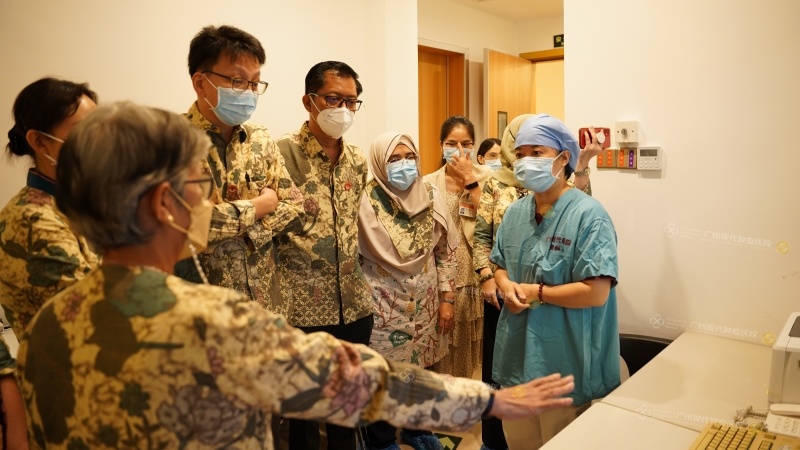
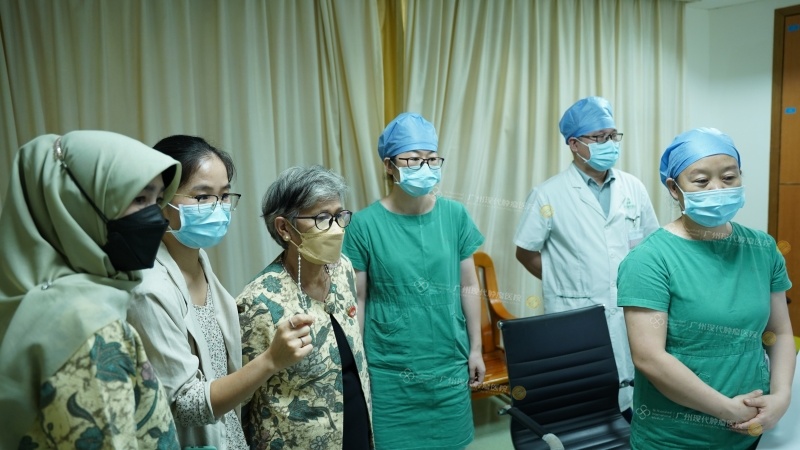
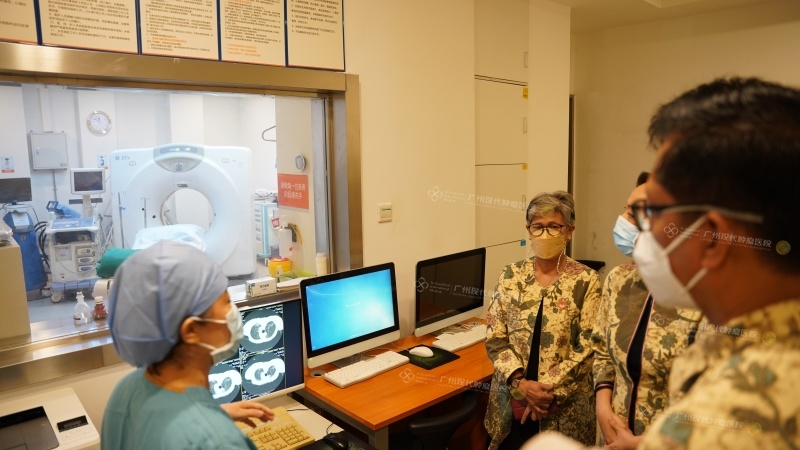
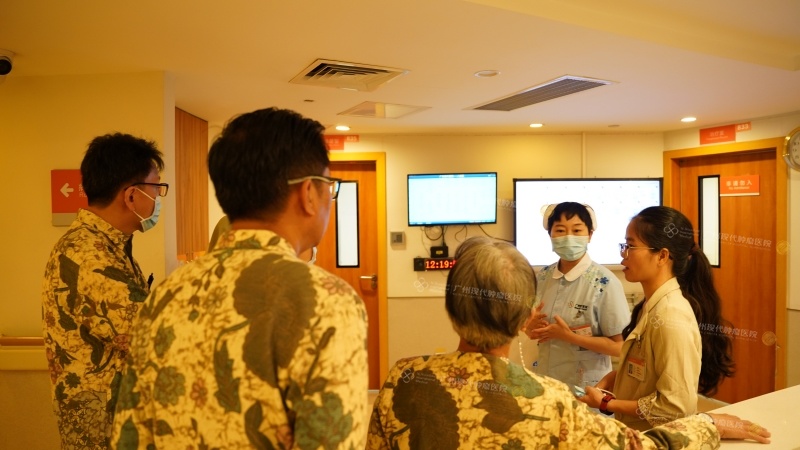
The visiting group of the Indonesian Traditional Health Commission and the Manila Medical Association of the Philippines also visited the Indonesian patients and Manila patients in the hospital, sent them greeting fruit baskets, cared about their treatment and physical condition, and wished them a speedy recovery.
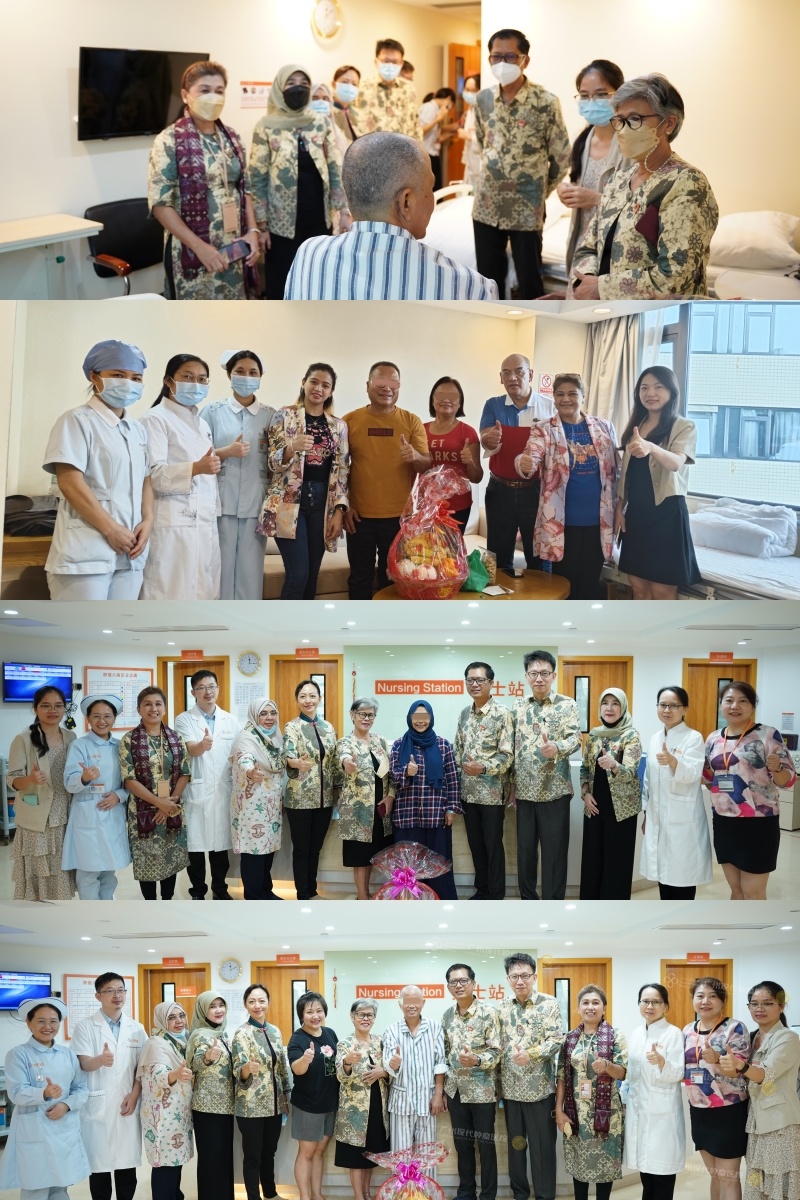
During this visit, the hospital also arranged for Professor Peng Xiaochi from the hospital’s oncology department to give lectures, introducing the three minimally invasive technologies for cancer treatment, Cryotherapy, Particle knife and Nanoknife, to the delegation of the Indonesian Traditional Health Commission and the Manila Medical Association of the Philippines. These minimally invasive technologies are accurate, effective, small incision, non-toxic and side effects, and have a very good effect on the treatment of solid cancer. The atmosphere at the scene was so good, the delegation of the Indonesian Traditional Health Commission and the Manila Medical Association of the Philippines also asked Professor Peng Xiaochi questions and studies on the spot.
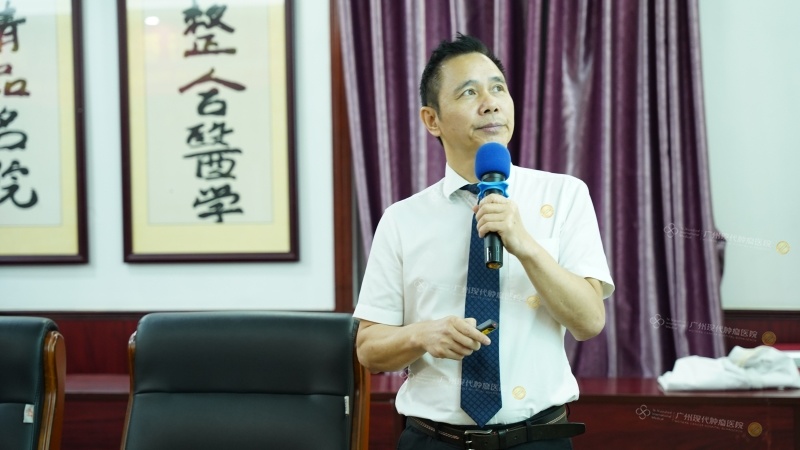
SUNARTO HARDJO SOETOPO, chairman of the Indonesian Traditional Health Commission, affirmed the advanced minimally invasive technology of St. Stamford Modern Cancer Hospital Guangzhou, and highly affirmed this medical academic exchange trip. He hoped that the hospital and Indonesia will be more effective in tumor treatment in the future. There will be further cooperation and exchanges in the field to bring high-quality cancer treatment resources to more Indonesian patients.
In the afternoon, the delegation of the Indonesian Traditional Health Commission and the Manila Medical Association of the Philippines attended the unveiling ceremony of the Chinese Anti-Cancer Association (CACA) to set up the Belt and Road Integrated Oncology Medical Training Base (Guangdong).
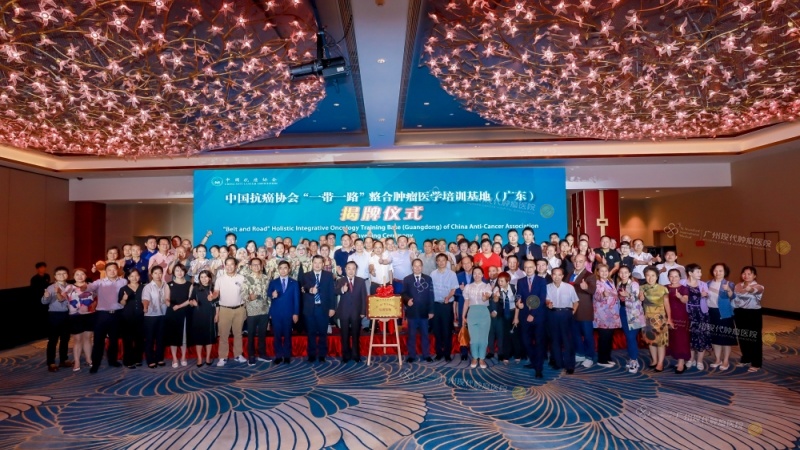
【Introduction】
As the sixth training base, St. Stamford Modern Cancer Hospital Guangzhou will, on this basis, join hands with the China Anti-Cancer Association to face the countries along the Belt and Road and promote CACA guidelines, personnel training, cooperation and medical exchange, popular science education, and international training. Carry out work in remote consultation and other aspects, promote the spread of our country's advanced treatment technology to Southeast Asian countries, and benefit cancer patients in China and countries along the Belt and Road.






